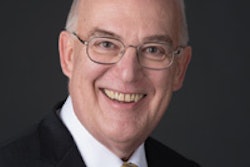The W. K. Kellogg Foundation has awarded a two-year, $400,000 grant to the American Dental Education Association (ADEA) Minority Dental Faculty Development (MDFD) program to address oral health disparities in vulnerable children and communities.
The program's approach is to bring together academic dental health professionals with partners in their communities to create a longer-term environment where regular dental care is attainable by all Americans.
A growing body of research indicates that minority patients are more likely to seek healthcare from a minority healthcare provider and, similarly, that practitioners from underserved areas often return to those areas to practice. The MDFD program seeks to develop new, more diverse generations of allied dental health professionals prepared to meet the systemic, unmet need for dental care in the U.S, according to the ADEA. It emphasizes best practices in outreach, leadership development, academic mentorship, and increasing diversity in the academic pipeline.
The two-year grants for MDFD III (2013-2015) are being awarded to the University of Detroit Mercy, Georgia Regents University, Howard University (Year One: 2013-2014), and the University of Oklahoma and University of Minnesota (Year Two: 2014-2015).
"The diversity of dental and allied dental school faculty has a direct and positive effect on students, and ultimately on patients in communities where oral healthcare may be more difficult to find," stated Jeanne Sinkford, DDS, PhD, ADEA Senior Scholar-in-Residence, in a press release. "These Kellogg Foundation grants are absolutely critical to the ability of the dental health professions to do our part in getting oral healthcare to the people who need it most."
As of October 2014, 4,968 areas in the U.S. were designated as dental health professional shortage areas, where there are 5,000 or more people per dentist. This lack of access to oral healthcare affects Americans of all ages -- adults with incomes below 100% of the federal poverty line are three times more likely to have untreated oral healthcare needs, and it is worse for children. In 2010, 4.2 million children ages 2 to 7 years were in need of dental care and yet did not receive it, the ADEA noted.



















